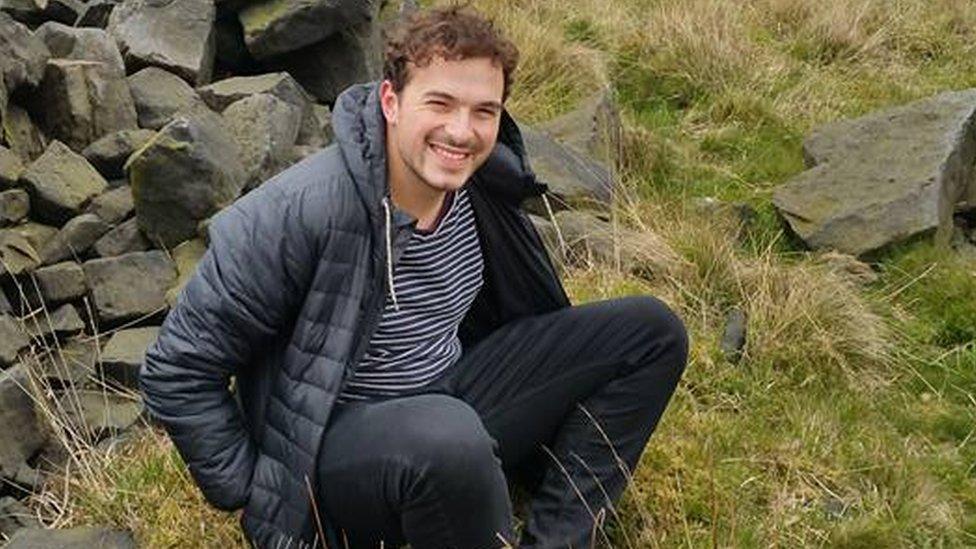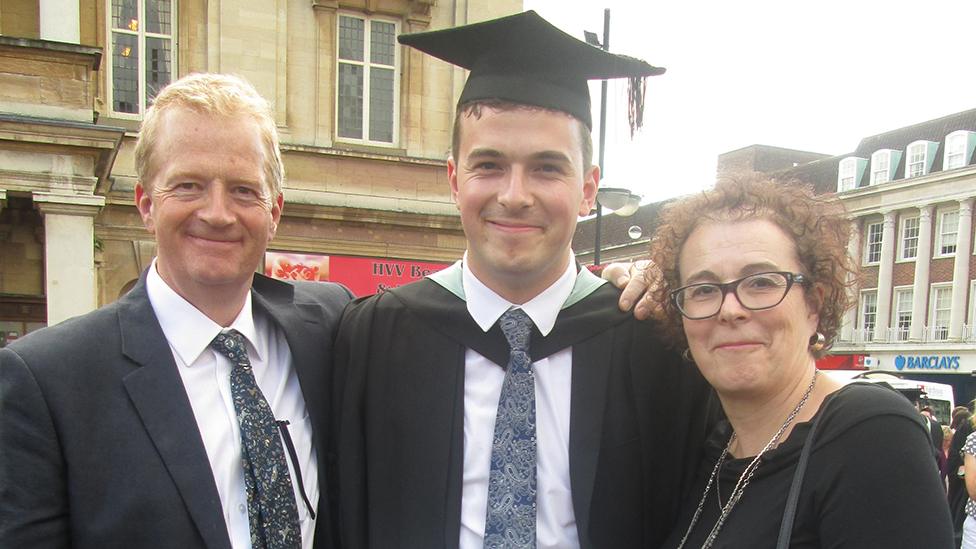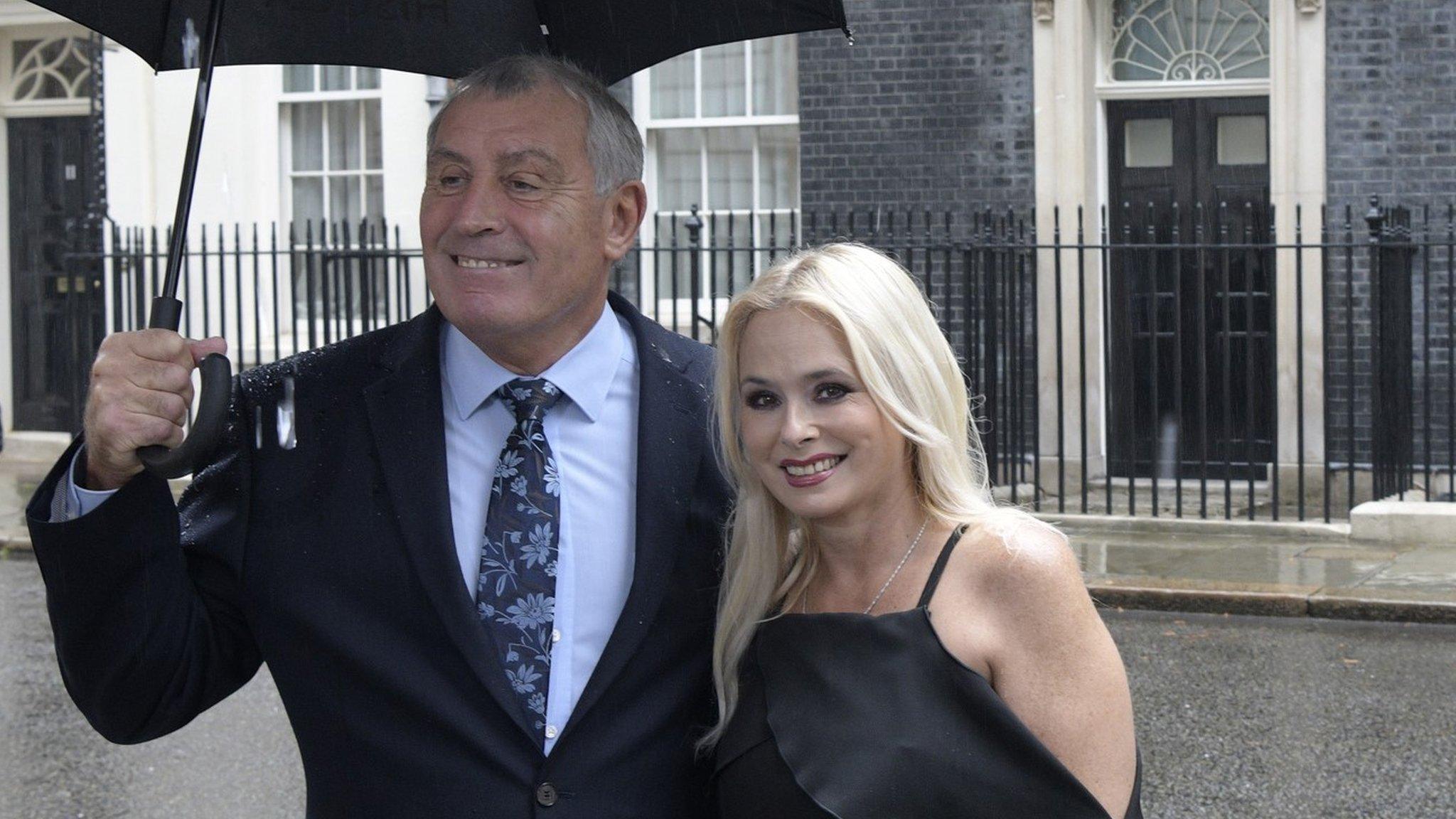Jack Ritchie inquest: Gambling addict help 'woefully inadequate'
- Published

Jack Ritchie took his own life in Vietnam in 2017 after years of gambling addiction
A teacher with a gambling addiction who took his own life was failed by "woefully inadequate" warnings and treatments, a coroner has said.
Jack Ritchie's disorder had "spiralled out of control" before his death aged 24, but the help available did not meet his needs, an inquest heard.
The resulting "feelings of shame and hopelessness" had made him feel suicidal, coroner David Urpeth said.
Mr Ritchie's parents said gambling was "the root and trigger of Jack's death".
Speaking on the steps of Sheffield Town Hall, where the inquest was held, his mother Liz Ritchie said: "Jack was abused by parasites who inflict life-threatening illness for profit and then blame the victims, making them feel that everything is their fault and that they are better off dead.
"As his family, we know that Jack was not the problem and in our grief we are also victims of predatory companies and a collusive government."
Jack's father, Charles Ritchie said: "The government accepted that our frontline NHS staff - our GPs, our nurses - had no training to be able to recognise, diagnose or treat gambling disorders.
"It must now be clear we need a statutory levy for the NHS to remove any gambling industry influence over information and treatment."
The two-week inquest heard Mr Ritchie, from Sheffield, had become hooked in his late teens when he would use fixed-odds terminals in betting shops.
He spent the subsequent years battling with his addiction, but died while working in Vietnam in November 2017.

Charles and Liz Ritchie set up the charity Gambling with Lives following the death of their son
In a narrative conclusion, South Yorkshire senior coroner Mr Urpeth said gambling had been a factor in Mr Ritchie's death, which was a "stark reminder of the terrible consequences that can flow from an addiction".
He said information about the dangers and associated treatments available at the time was "woefully inadequate and failed to meet Jack's needs".
"Jack did not understand that being addicted to gambling was not his fault," Mr Urpeth said.
"That lack of understanding led to feelings of shame and hopelessness which, in time, led to him feeling suicidal."
'Significant gaps'
The coroner said he would be writing to a number of government departments with warnings about how future deaths could be prevented and particularly highlighted the need for more training for GPs about gambling disorders.
He told the hearing that "evidence showed there were still significant gaps" in provision for gambling disorders and warnings about the dangers.
Mr Ritchie's parents believe that failures on the part of UK authorities to address gambling issues contributed to their son's death.
Mr Urpeth praised the couple for their campaigning, saying they had "channelled their terrible loss into a tireless battle" for reform, and that he believed they had done all they could to help their son.
Mr and Mrs Ritchie believe the hearing is the first so-called Article 2 inquest in a case relating to suicide following gambling.
This means its scope included an examination of whether any arm of the state breached its duty to protect their son's right to life.
Following the inquest, a Gambling Commission spokesman said: "Jack's death was a tragedy and we have met and spoken with Jack's parents on several occasions to understand and agree how we can learn from their experience to inform the way we work.
"These conversations, along with those of others who have experienced harm, strengthens our commitment to protect consumers and make Britain's gambling market fairer and safer."

Follow BBC Yorkshire on Facebook, external, Twitter, external and Instagram, external. Send your story ideas to yorkslincs.news@bbc.co.uk, external.
- Published23 February 2022

- Published21 February 2022

- Published20 February 2022

- Attribution
- Published14 September 2021

- Published26 September 2020

- Published28 August 2019

- Published24 October 2018
